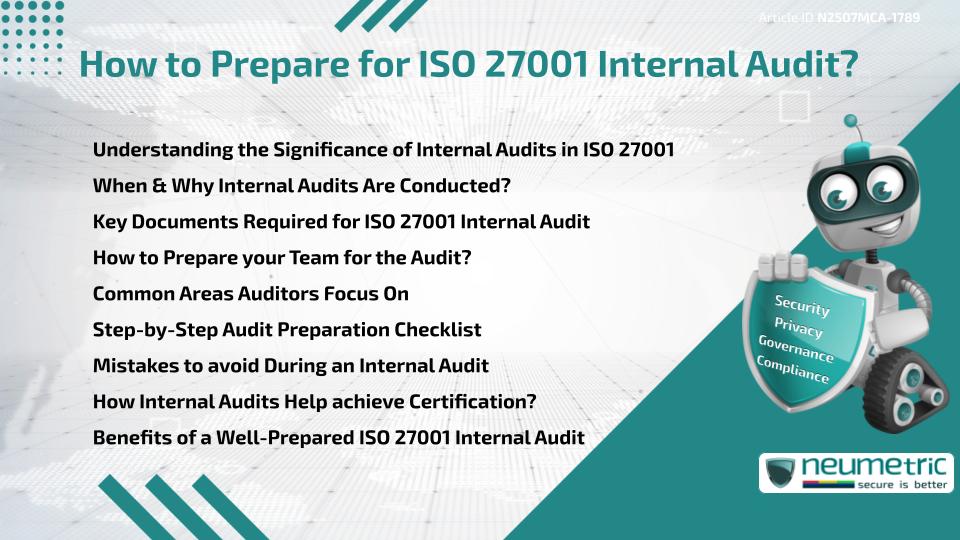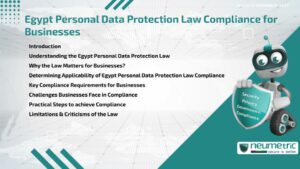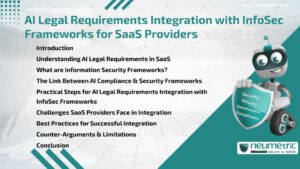Table of Contents
ToggleIntroduction
Preparing for an ISO 27001 Internal Audit is a vital step for any Organisation working toward or maintaining an effective Information Security Management System [ISMS]. It helps verify that your ISMS meets the standard’s requirements & identifies areas needing improvement. Knowing how to prepare for ISO 27001 Internal Audit ensures a smoother process, reduces Non-Conformities & builds confidence before an External Audit.
In this article, we will explain the importance of Internal Audits, what to expect, how to prepare your team & documents & how to avoid common pitfalls.
Understanding the Significance of Internal Audits in ISO 27001
Internal Audits are not just a box to check — they are a core requirement of ISO 27001. According to ISO.org, they ensure that your ISMS operates effectively & continues to meet both the Organisation’s goals & the standard’s clauses.
Internal Audits provide a structured approach to test whether Security Controls are functioning as intended. They also help uncover Vulnerabilities or gaps before they become a Compliance issue.
When & Why Internal Audits Are Conducted?
Internal Audits are typically scheduled at regular intervals — often annually or biannually. The timing depends on the Organisation’s size, Risk level & maturity of its ISMS.
Audits help:
- Ensure Compliance with ISO 27001 Clause 9.2
- Prepare for External Certification Audits
- Evaluate effectiveness of Risk Treatment Plans
- Identify areas for Continual improvement
Knowing how to prepare for ISO 27001 Internal Audit helps your Organisation meet these objectives efficiently.
Key Documents Required for ISO 27001 Internal Audit
To demonstrate Compliance, auditors often request several key documents. These include:
- Information Security Policy
- Risk Assessment & Treatment Reports
- Statement of Applicability
- Asset Inventory
- Incident Logs
- Access Control Policies
- Internal Audit Reports & Management Reviews
Having these ready in advance is essential for teams wondering how to prepare for ISO 27001 Internal Audit.
How to Prepare your Team for the Audit?
The success of an Audit often depends on how well-prepared your team is. Assign clear roles & responsibilities for Audit preparation tasks. Educate them on what will be reviewed & how they might be interviewed.
Here are practical steps:
- Conduct a pre-Audit briefing
- Assign a coordinator to communicate with auditors
- Clarify document ownership
- Run a mock Audit or Gap Analysis
Common Areas Auditors Focus On
Understanding the Auditor’s perspective helps with focused preparation. Key areas include:
- Evidence of continual improvement
- Risk Management practices
- Incident handling procedure
- Training & awareness programs
- Physical & logical Access Control
A common misconception about how to prepare for ISO 27001 Internal Audit is to focus only on documentation. Operational implementation is equally important.
Step-by-Step Audit Preparation Checklist
To simplify the process, follow this checklist:
- Define the scope of the Internal Audit
- Review previous Audit reports & follow-up actions
- Confirm Audit schedule & participants
- Collect all required documents
- Perform a self-assessment or internal pre-Audit
- Train involved team members
- Ensure Top Management is informed
- Test controls in critical areas
- Document findings & action plans
This practical list can guide any team learning how to prepare for ISO 27001 Internal Audit from scratch.
Mistakes to avoid During an Internal Audit
Avoid these common pitfalls:
- Incomplete documentation
- Lack of objective Evidence
- Overdependence on automation tools
- Failing to address previous Non-Conformities
- Not involving key Stakeholders
Preparation means not only collecting documents but also ensuring processes are consistently followed.
How Internal Audits Help achieve Certification?
While Internal Audits are not formal certification Audits, they prepare your ISMS for external evaluation. They:
- Build a culture of accountability
- Improve team readiness
- Reduce Likelihood of major Non-Conformities
- Increase the chances of certification success
Knowing how to prepare for ISO 27001 Internal Audit is directly linked to achieving & maintaining certification.
Benefits of a Well-Prepared ISO 27001 Internal Audit
When your Organisation is well-prepared:
- The Audit process is smoother & faster
- You build internal confidence & transparency
- Your commitment to security is shown to Regulators & Partners
- You identify gaps proactively, saving costs in the long term
A solid understanding of how to prepare for ISO 27001 Internal Audit creates a foundation for long-term security & Compliance.
Takeaways
- Internal Audits are a mandatory ISO 27001 requirement & a best practice.
- Preparing your team & documentation is critical to Audit success.
- Focus on both policy & implementation to avoid Non-Conformities.
- Use pre-Audit checklists & tools for a structured approach.
- Learn from previous Audits & keep a culture of improvement.
FAQ
What is the first step in how to prepare for ISO 27001 Internal Audit?
Start by defining the scope of the Audit & identifying the controls & areas to be assessed based on your ISMS implementation.
Who should conduct the ISO 27001 Internal Audit?
An impartial internal team member or external consultant with sufficient knowledge of ISO 27001 should perform the Audit to ensure objectivity.
How often should Internal Audits be conducted?
Internal Audits should be done at least once a year or more frequently depending on Risk levels & significant changes to the ISMS.
What happens if we find Non-Conformities during an Internal Audit?
Non-Conformities found must be documented & followed up with Corrective Actions. This is a key element in understanding how to prepare for ISO 27001 Internal Audit.
Do we need to train staff before an Internal Audit?
Yes, team members should understand the Audit purpose & be ready to provide Evidence of Compliance & explain their roles in ISMS processes.
Can an Internal Audit be skipped if an External Audit is scheduled?
No, ISO 27001 requires Internal Audits to be conducted regardless of external Audits to ensure continual internal review & improvement.
How much time does it take to prepare for an Internal Audit?
Preparation time depends on ISMS maturity, but typically takes one (1) to four (4) weeks to organise documents, perform a pre-Audit & train staff.
What tools can help us prepare for ISO 27001 Internal Audit?
Tools like Audit checklists, document management systems & Gap Analysis tools can support efficient preparation.
Need help?
Neumetric provides organisations the necessary help to achieve their Cybersecurity, Compliance, Governance, Privacy, Certifications & Pentesting goals.
Organisations & Businesses, specifically those which provide SaaS & AI Solutions, usually need a Cybersecurity Partner for meeting & maintaining the ongoing Security & Privacy needs & requirements of their Clients & Customers.
SOC 2, ISO 27001, ISO 42001, NIST, HIPAA, HECVAT, EU GDPR are some of the Frameworks that are served by Fusion – a centralised, automated, AI-enabled SaaS Solution created & managed by Neumetric.
Reach out to us!





